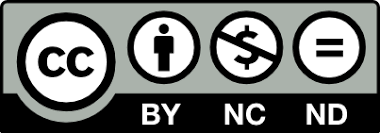Breach of Conversational Maxims in Courtroom Discourse: A Conversation Analysis Approach
DOI:
https://doi.org/10.55804/jtsu2346-8149.2025.09.06Keywords:
courtroom discourse, implicature, conversational analysis, Grice’s maximsAbstract
This article explores the phenomenon of implicature within courtroom discourse, adopting a qualitative research perspective to provide a nuanced understanding of how implied meanings function in legal interactions. Courtroom communication is inherently strategic, as participants—including judges, lawyers, defendants, and witnesses—navigate a complex network of linguistic and pragmatic choices. In such settings, conversational implicature becomes a powerful tool for shaping narratives, influencing perceptions, and advancing legal arguments.
In courtroom interactions, participants often diverge from the conventional norms of cooperative communication, as described in Grice’s Cooperative Principle. Rather than merely exchanging information, they frequently engage in deliberate manipulations of language, creating implied meanings that serve their procedural and strategic goals. These deviations from expected conversational norms result in various implicatures instrumental in supporting or undermining particular legal positions.
The primary aim of this study is to identify and analyze the types of implicatures used to challenge and discredit opposing testimonies. By detecting violations of Grice’s Maxims—quality, quantity, relation, and manner—the study seeks to uncover how legal representatives construct implications that cast doubt on opposing witnesses' reliability, consistency, or truthfulness. Lawyers, in particular, employ implicature to expose contradictions, highlight ambiguities, and subtly suggest dishonesty without directly accusing a witness of lying. Through careful questioning and selective framing of evidence, they generate meanings that go beyond the literal interpretation of words.
Defendants, on the other hand, utilize implicature defensively, often to assert their innocence or to strengthen the credibility of their testimonies. They may rely on indirect statements, omissions, or suggestive phrasing to avoid self-incrimination while conveying persuasive narratives. This dynamic interaction between legal actors creates a layered and complex discourse, where what is left unsaid can be as significant as what is explicitly stated.
The findings of this study demonstrate that implicature plays a pivotal role in the adversarial structure of courtroom proceedings. Lawyers strategically exploit implicature to weaken opposing arguments and influence judges and juries, while defendants leverage it to protect their positions and gain sympathy or trust. As a result, implicature emerges not merely as a linguistic phenomenon but as a central mechanism through which power, persuasion, and legal outcomes are negotiated in the courtroom. This highlights the importance of understanding pragmatic elements in forensic linguistics, as they provide critical insights into how meaning is constructed and contested in legal discourse.
References
Abbaszadeh, F., & Gorjian, B. (2021). Analyzing Court Discourse Based on Gricean Cooperative Principles: A
Case Study of ISIS Defendants. Language Studies, 1(1).
Aceron, R. (2015). Conversational Analysis: The Judge and Lawyers' Courtroom Interactions.
Carr, E. S. (2010). Scripting addiction: The politics of therapeutic talk and American sobriety. Princeton
University Press.
Du Cann, R. (1964). The art of the advocate. Harmondsworth: Penguin.
Eades, D. (2008). Courtroom talk and neocolonial control. Mouton de Gruyter.
Ehrlich, S., & Sidnell, J. (Eds.). (2006). Advances in the sociolinguistics of narrative and interaction. John
Benjamins Publishing.
Fairclough, N. (2013). Critical discourse analysis: The critical study of language (2nd ed.). Routledge.
Galdia, M. (2009). Legal linguistics. Peter Lang.
Gazdar, G. (1979). Pragmatics: Implicature, presupposition and logical form. New York: Academic Press.
Grice, H. P. (1975). Logic and conversation. In P. Cole & J. L. Morgan (Eds.), Syntax and semantics: Vol. 3.
Speech acts (pp. 41–58). New York: Academic Press.
Grice, H. P. (1989). Studies in the way of words. Cambridge, MA: Harvard University Press.
Harris, R. (2001). Rethinking writing. Continuum.
Ma, Y. Z. (2015). Analysis of conversational implicature of courtroom English discourse. Journal of Language
Teaching and Research, 6(1), 197–202.
May, L. (2002). To Grice or not to Grice. Journal of Pragmatics, 12(3), 201–202.
Omwancha, J. K., Odhiambo, K., & Ombati, J. (2024). An Analysis of the Observance of the Cooperative
Principle Maxims in Selected Kenyan Courts of Law. International Journal of Language and Linguistics,
(6).
Rivlin, G. (2004). Understanding the law. Oxford: Oxford University Press.
Sacks, H., Schegloff, E. A., & Jefferson, G. (1974). A simplest systematics for the organization of turn-taking for
conversation. Language, 50(4), 696–735.
Sidnell, J. (2010). Conversation analysis: An introduction. Wiley-Blackwell.
Wellman, F. L. (2002). The art of cross-examination. XinHua Publishing Press.
Yuan, Q. T. (2012). The realization of lawyer’s language power in cross-examination: A pragmatic approach
(Master’s thesis, Southwest University of Political Science & Law, China).
Zidros, V. V. (2015). Conflictive Courtroom Discourse from a Sociohistorical Pragmatic Perspective: Power
Dynamics in the Civil Trial of Anne Hutchinson (1637). University of Glasgow.
Internet Sources
https://www.mcspotlight.org/case/trial/transcripts/
- International Criminal Court. (2024, July 23). Transcript of proceedings: The Prosecutor v. Joseph
Kony (Situation in Uganda).
- International Criminal Court. (2024, September 5). Transcript of proceedings: The Prosecutor v.
Mahamat Said Abdel Kani
- Supreme Court of the United States. (2021, January 11). Transcript of oral argument: Pham v. Guzman
Chavez (No. 19-897).
- Supreme Court of the United States. (2021, April 26). Transcript of oral argument: Territory of Guam
v. United States (No. 20-382).
- Supreme Court of the United States. (2021). Transcript of oral argument: City of San Antonio, Texas v.
Hotels.com, L.P. (No. 20-334).
- Supreme Court of the United States. (2021). Transcript of oral argument: Minerva Surgical, Inc. v.
Hologic, Inc. (No. 20-440).
Downloads
Published
How to Cite
Issue
Section
License
Copyright (c) 2025 Authors Retain All Rights. Online Journal of Humanities ETAGTSU Has Only the Right of the First Publication.

This work is licensed under a Creative Commons Attribution-NonCommercial-NoDerivatives 4.0 International License.












